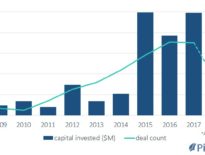
The Problem Solution Statement; a core tenet of Lean Startup and Customer Development. A phrase that conveys to founders and investors alike that the purpose of a startup is to solve a problem; an idea that leads many to believe that a pitch should lay out how the problem is being solved.
With most new ventures failing, perhaps everyone is thinking about this in the wrong form and fashion.
Startups Haven’t Solved Problems; That’s Why They Are Startups
“To what extent do entrepreneurs actually solve problems v.s. create new ones? Yelp for example helps diners find good places but creates a big online reputation management headache for restaurateurs. Another example is Facebook. It might solve a few relationship problems for people, but it’s usage also creates plenty of new ones, too.”
Austin entrepreneur Mark Biwojno shared that thought shared that thought and it sparked a notion. Is there not a difference between the very first and the subsequent?
Yelp helps find good places and creates an online reputation management headache… but it wasn’t the first to do so. Thus the first created new problems.
Entrepreneurs always create new problems.
It might be said, that’s the distinguishing characteristic of “entrepreneur” vs. other new-business leader titles.
Jean Baptiste Say (who coined the term) pointed out that it was entrepreneurs who sought out inefficient uses of resources and capital and moved them into more productive, higher yield areas. Entrepreneurs seek opportunities for profit and, by doing so, create new markets and fresh opportunities.
Entrepreneur isn’t a job title, it’s a personality trait. A startup founder might be entrepreneurial; frankly too though, they might not be an entrepreneur.
Follow? You can be a startup founder, start something new and innovative, but not repeatedly seek out such opportunities nor create a new market in doing so.
Likewise, any job could be occupied by an entrepreneur; a Realtor in my neighborhood is always tackling the home ownership market in new ways – it could be said she’s entrepreneurial but clearly not starting a new business.
The distinction is: create *new* markets and opportunities.
Being distinctly new, one could note that that means they are always, by way of doing so, creating new problems.
Right? They address problems in the course of their work, but since they are creating new markets, new problems will always arise: funding that, staffing that, training for that, regulating that, etc.
It’s the subsequent developments/new businesses that then tackle those created problems.
Ventures subsequent to the first, in the same vein, work to address problems created by the new market established by the entrepreneur.
Creating new markets will always result in new problems.
Thus, what marks the entrepreneur from a founder, business owner, etc. is that they are always creating new problems. The mere new business, not run by an entrepreneur, addressing the problems the entrepreneur created, typically doesn’t create any new problems; they apply a now known model, process, etc. to doing what their predecessor did, so as to profit in the new market. They’re addressing existing problems more effectively or efficiently.
Of course, nothing, certainly not this, is so black and white… Some new market opportunities are created in every endeavor and subsequent new ventures in that market solve some of those new problems (so as to be the more compelling competitor); and they in turn create more.
Creating new markets will always result in new problems. So, while they are addressing and solving problems, what marks the entrepreneur from a founder, business owner, etc. is they are always creating new problems. The mere new business, not run by an entrepreneur, addressing one of those new problems the entrepreneur created, often doesn’t create any new problems; they apply a now known model, process, etc. to doing what their predecessor did, so as to profit in the new market.
The Yelp example is a decent way of thinking about it when you take it further… The very first person who looked at the internet and realized there was a new market that could exist for online restaurant reviews, was the entrepreneur (that wasn’t Yelp by the way). They did that, and created new problems… Restaurants needing/wanting to control those, owners needing to keep listings accurate, etc.
But the second website developer or startup founder to do the same thing, was merely creating a new business with an existing model. Said people weren’t the entrepreneur, they were founders, business owners, etc. to be sure but the new market was already created. The problems established.
This is, by the way, why the idea of *second mover* advantage is important in innovation. The first to create the new market, creates new problems that haven’t yet been considered and solved… The second to market, benefits from the learned model of the first AND can apply their resources to tackling the resulting problems.
This is also why marketing tends to be the most important investment of successful new ventures… Studying the market to know those predecessors, learn from them, know the problems they uncovered, and focusing on serving the new market better, is what wins.
[Image source: N2Growth – Leadership is About Breaking Things; Mike Myatt]


Creating value amidst shifting business models, and shifting customer centric sales mindset to solve problems not resolved with existing business platforms. It’s the revulsion of evolution, and should always put the customer first, i.e. your strongest growth channels ?
Innovation requires us to systematically identify changes that have already occurred in a business – in demographics, in values, in technology or science – and then to look at them as opportunities. It also requires something that is most difficult for existing companies to do: to abandon rather than defend yesterday.
Peter Drucker
Love this Richard Leon, “It also requires something that is most difficult for existing companies to do: to abandon rather than defend yesterday.”
Thanks for the mention Paul. So essentially, entrepreneurs are out there creating new solutions & problems will always arise inadvertently from those solutions.
Perhaps another thing to note here is it would seem word of big new problems spreads faster than word of big new solutions. It gets people talking. We could even think back to the caveman era; word of a war with the neighboring tribe would must’ve spread quite a bit faster than word of an innovative new way to create fire. So creating some problems inadvertently with one’s new solution might be a way to get through the marketing noise. Just a thought.
Break stuff!! Great article from Paul O’Brien.
Indeed!! The only way to shake things around when the majority are in dormant state